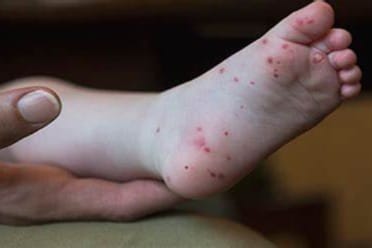South Africa’s Department of Health (DoH) has called for residents to remain calm and vigilant following an outbreak of hand, foot, and mouth disease (HFMD) in KwaZulu-Natal Province.
In collaboration with the National Institute for Communicable Diseases, the DoH is closely monitoring the outbreak and providing necessary support to contain its spread. Since the initial six cases were identified between February 6 and 10, the number of confirmed HFMD cases in the province has risen to 168, primarily concentrated in the Durban area.
“The outbreak is under control and there is no serious public health threat detected at this moment,” assured the DoH. However, parents and caregivers are urged to remain vigilant for symptoms in children, such as fever, sore throat, fatigue, loss of appetite, and small blisters inside the mouth, on the tongue, and on the hands and feet.
HFMD is a common viral infection, particularly affecting children under the age of ten. Although less common in adults, individuals with weakened immune systems may also be at risk. The infection is usually self-limiting, resolving within seven to ten days without medical intervention. Some cases, however, may require hospitalization due to complications.
To prevent further transmission, the DoH advises keeping symptomatic children at home until they fully recover. Good hygiene practices, such as regular handwashing, covering mouths when coughing, frequent cleaning of surfaces, and avoiding the sharing of eating utensils and stationery, are crucial in preventing and controlling the spread of HFMD.
HFMD is caused by enteroviruses and spreads through direct contact with an infected person, respiratory droplets, and contact with contaminated objects or feces. Small outbreaks often occur in schools and daycare centers, particularly during the summer and autumn months.
By adhering to these guidelines and remaining vigilant, residents can help control the spread of HFMD and protect vulnerable populations.


